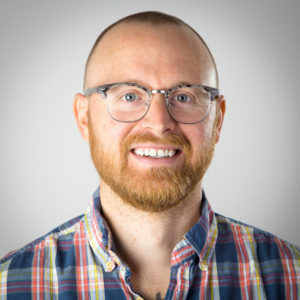
Marriott Library, University of Utah

North Carolina State University Libraries
This post is a summary of the plenary session “Plan S Point – Counterpoint: Discussing the Plan Together,” exceptionally presented by Rick Anderson and Micha Vandergrift at the ISMTE North America 2019 Annual Meeting in Durham, NC on August 1, 2019.
Is Plan S necessary?
RA: It depends on what scholarly ecosystem you want to see.
MV: Plan S is about journal literature. Plan S is about an inclusive ecosystem and is a concrete sign that the publishing system has changed.
To what degree are the ideals of Plan S achievable?
MV: I don’t think there is a “going back” from the Plan S ideals, even if it fails. All steps lead to open access.
RA: I want to clarify that Coalition S’s ideal requires either universal agreement or universal mandate, and universality rarely happens without coercion. In Europe, many universities are public, and institutions have more central control, unlike the U.S.
How will Plan S affect society publishers?
RA: Any answer to this is speculative. Also, you can’t know how people are going to fall within the impact of Plan S. Plan S poses more of a threat to smaller nonprofit publishing houses than larger commercial publishers who have infrastructure already in place.
MV: There are certain current open access “experiments” we can look at. I would like to see more singular journals move toward open access, and I hope this can be figured out without having to go to the big publishers.
How can the U.S. academic publishing ecosystem adapt to and align with Plan S-ish ideals?
MV: This is a hard question. I have to agree that this changes everything, and it will take time. I also have to agree that we need to be responsible together. This is all about the researchers and the service of building new knowledge and sharing it with the world. I would like to see a solid plan of action from the U.S. institutions, which need to state that they will prioritize open access when concerning promotions and tenure.
RA: I think this begs the question “Can the system adapt to this new idea?” before we can ask SHOULD it adapt to this ideal. The great majority of researchers believe scholarship should be easily accessed. But, if you ask if open access is the best way to do it, you’ll get a different response. You have to bring up academic freedom. In the 1940 Statement of Principles on Academic Freedom and Tenure (link: https://www.aaup.org/report/1940-statement-principles-academic-freedom-and-tenure), it says, “Teachers are entitled to full freedom in research and in the publication of the results, subject to the adequate performance of their other academic duties; but research for pecuniary return should be based upon an understanding with the authorities of the institution.” Does it mean freedom to publish? Or freedom of how/when/with whom to publish? Plan S is a bit late to the game. U.S. academics have been moving toward open access over the past 20 years or so. Plan S demands mandatory open access, and I don’t see the mandate happening.
What principles of Plan S can we agree on?
RA: Open access is a good thing and funders have the right to open it, even if U.S. authors and institutions don’t want to.
MV: Agreed.
How does Plan S integrate funder policy discussions in the U.S., and how can we prepare for or inform those discussions?
RA: The only funder to sign on to Plan S so far in the U.S. is the Gates Foundation, but they were already open access. Many funders haven’t publicly discussed Plan S. I think one of the most helpful things to do is perform a rigorous analysis of the cost and benefits of Plan S and to have it available to everyone.
MV: The U.S. is already on its way to public access. There’s been a delay in discussing U.S. public access policy. Hopefully we start to talk about this again. Europe has a very functional and efficient complaint mechanism. We could come together and create an alliance on transparency from funders.
Note: All answers have been summarized.
Written by: Erin Valentine
